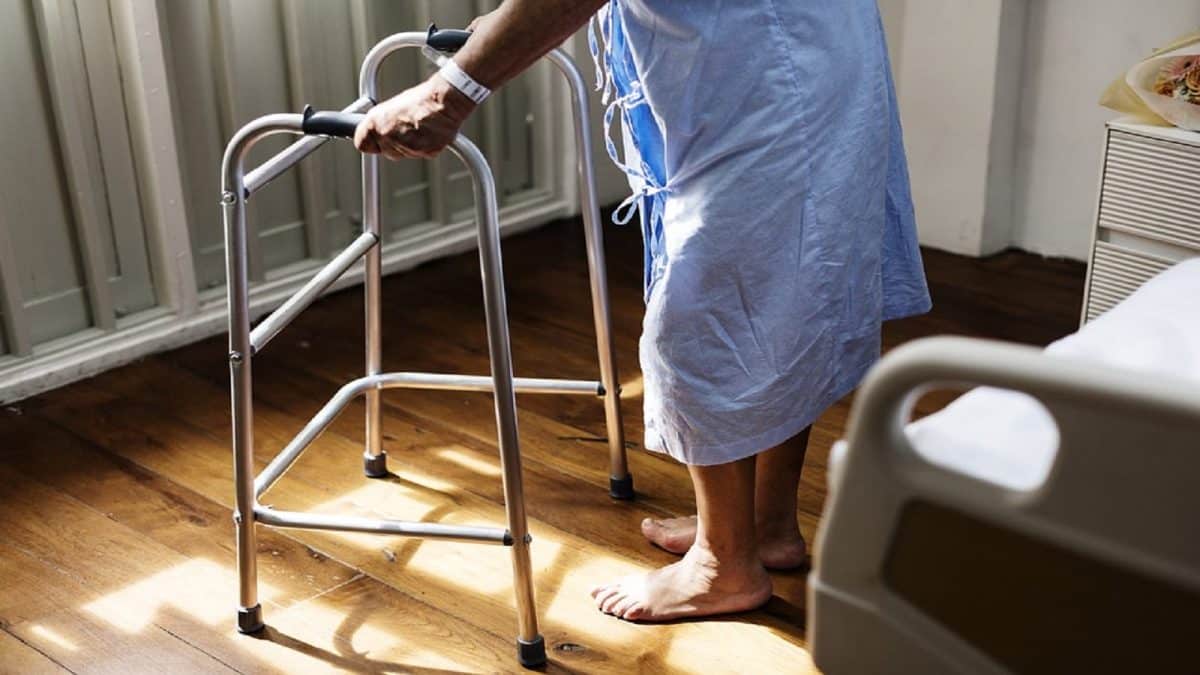Nursing home abuse is a troubling epidemic today. With the population aging rapidly and caregivers in such great demand, it is an unfortunate reality that many of our elderly citizens are receiving substandard, negligent, and even abusive treatment in elder care facilities.
Because the subjects of nursing home abuse are frequently incapacitated, physically and mentally, malpractice cases can be difficult to prove and to litigate. A malpractice case against a nursing facility is usually based on claims of physical abuse, neglect, or both.
Physical Abuse & Neglect
Physical abuse may consist of violent treatment such as pinching and hitting, as well as unnecessary restraint and overmedication. Neglect consists of a failure to sufficiently care for the patient, through inadequate hygiene, inadequate nutrition, improper or inadequate medical care, or other neglect of duties.
If you suspect that a loved one is experiencing nursing home neglect or abuse, it is essential that you seek help for them as soon as possible. Do not, however, confront the abusive caregivers while the person is still in their care, as it may put your loved one in further danger.
The first step is to contact your local social services agency that deals with adult care issues. The website Eldercare.gov provides a comprehensive listing of these agencies, which you can use to get your loved one out of immediate danger.
Signs of Nursing Home Abuse or Neglect
If your loved one is in a nursing home, they depend on the high level of care that the home is supposed to supply, and they depend on you to monitor their level of care. If your loved one is suffering abuse or neglect, early recognition of the signs can be crucial to protecting him or her from suffering, worsening a condition, and, ultimately, a shorter life.
Signs of Nursing Home Abuse
In most cases of nursing home abuse, elders are reluctant to speak up because they are afraid of reprisal by the abuser, so it is important to look for the signs. Nursing home abuse may leave both physical and psychological signs. Physical signs of abuse include:
- Unexplained bruises, cuts, or injuries
- Marks on wrists, ankles, and elsewhere from physical restraints
- Torn or missing clothing
- Sudden changes in medication that make your loved one less responsive or capable
Psychological signs of abuse include:
- Changes in personality or behavior
- Reluctance to talk, especially when this reluctance is associated with particular times, people, or events
- Loss of appetite
- Changes in behavior, attitude, or speech when a certain individual is present
If you recognize some of these signs, it is possible that your loved one is experiencing of abuse.
Signs of Nursing Home Neglect
The most common signs of neglect in a nursing home are:
- Unkempt appearance
- Soiled clothes or a full catheter bag
- Unclean area
- Infections
- Paleness
- Low energy
- Weight loss (look for sunken eyes, a bony appearance, and loose-fitting clothes)
- Thinning hair
- Increasingly dull skin
- Cracks around the lips
- Slow healing
- Bed sores – during every visit check your loved one’s head, shoulders, elbows, buttocks, and heels, as these are the most common locations for bed sores
If you recognize several of these signs, your loved one may be suffering from nursing home neglect, and you should talk with one of our experienced Alabama nursing home abuse lawyers to protect your loved one.
How to Check for Nursing Home Abuse or Neglect
To protect your loved one from nursing home abuse or neglect, the best thing you can do is to make frequent visits. Make your visits at different times during the day and night so that you get to see all the nursing home staff. Make your visits are long enough so you can get a sense of how frequently the staff checks on your loved one. Make sure some of your visits are over mealtimes so you can monitor your loved one’s eating. When possible, take your loved one out of the nursing home for activities. Sometimes this will help abuse or neglect feel free to talk.
Nursing Home Abuse Statistics
To date, there are over 2.6 million Americans living in nursing homes or other assisted living facilities. These numbers are on a steady increase as the Baby Boom generation ages. What many people are not aware of are the rising numbers of nursing home abuse and neglect cases that have been reported in recent years. If you or a loved one either resides in, or is shopping for a long-term care facility, you should be aware of these alarming statistics:
- Approximately 44 percent of nursing home residents have suffered some form of physical or psychological abuse. 48 percent report having suffered rough physical treatment, and 38 percent report having witnessed the abuse of other residents.
- 85 percent of nursing home staff blames staffing shortages for the cause of abuse.
- 81 percent of nursing home staff report having seen some form of verbal, physical, or other form of abuse over the previous year. Roughly 30 percent of long-term care staff had witnessed some form of physical abuse of a patient. 40 percent admit to having committed such acts at least once during the year prior.
- 66 percent of nursing home residents suffer from Alzheimer’s disease or other conditions that limit a) their awareness that abuse is occurring, b) their ability to report abuse of themselves or others, and c) their ability to avoid abusive situations.
- 10 percent of nursing homes were cited for actual physical abuse, while a third of have been cited for violations that had the potential to lead to abuse.
Abuse That Is Not Reported
Considering all of the above findings, perhaps what is most tragic is the estimate that only 20 percent of abuse cases ever get reported. As stated earlier, many nursing home residents are too cognitively impaired to make a report on their own, and those who are capable often choose not to out of fear that doing so would cause further abuse. Considering that many nursing home residents do not have friends or relatives nearby who can check on them regularly to see that they are being treated properly, this abuse can become a chronic issue.
Accredited vs. Non-accredited Nursing Homes
Dozens of new nursing homes and long-term care facilities have opened in Alabama over the last few years. Finding the right one for you or a loved one can take a lot of effort. You want to choose one that is both affordable and within a reasonable distance from friends and relatives. This can prove to be quite a challenge, especially for those who do not live near the state’s population centers.
Finding an affordable facility in a reasonable location are only two factors to consider. What is most important is that the facility you choose has a qualified, conscientious, and compassionate staff that provides a high standard of quality and care in addition to comfortable, modern amenities.
Accreditation by The Joint Commission’s Long Term Care Accreditation Program is one way of being sure that the facility you choose meets the highest standards of quality and care. The Joint Commission is the nation’s most prominent organization for setting quality and safety standards in the health care industry.
Why Choose an Accredited Nursing Home?
Becoming an accredited nursing home takes a significant investment of resources by the facility itself. The trade-off is that the facility’s residents and prospective residents know they are affiliating with the best of the best in the long-term care industry.
In choosing an accredited nursing home facility, you can be sure you are choosing an organized and well-run facility. Accredited nursing homes are subject to routine inspections by Joint Commission surveyors to ensure that the following standards are met or exceeded:
- Cleanliness and patient surveillance: Sanitary conditions are maintained and the prevention of infection and disease is a top concern. Residents are routinely checked on, with priority to those who are otherwise unable to take care of themselves.
- Ethics and patient’s rights: Patients are treated with compassion, respect, dignity, and their rights are upheld.
- Organization: This includes medication management, treatment schedules, the handling of patient information, and other services. Sufficient staff is available at all times and managerial and organizational performance and improvement is top priority.
Any number of things can be overlooked or neglected in a long-term care facility. Such negligence often leads to severe injury and wrongful death. For this reason, choosing a non-accredited nursing home and long-term care facility is a risk many are not willing to take.
Financial Exploitation Of Seniors
With the recent declines in the stock market, some people are finding that their retirement income is below what they expected. The thought that things could get even worse is making many scramble for some kind of security for their golden years. It is this feeling that insurance companies are attempting to exploit with a number of fraudulent financial products. These products promise good returns, but they drain the liquid assets of seniors, and provide limited returns that are sometimes only appreciable if a senior lives to 110 or more.
These at best inappropriate and at worst completely fraudulent financial products are sold at meetings held at senior centers, where they are touted by so-called “financial experts,” who receive high commissions for the products.
Guilty Companies
There are many insurance companies that are guilty of promoting fraudulent or inappropriate financial products to seniors, including:
- Great American Life
- OM Financial Life
- American Investors Life
- AVIVA
- Midland National Life
- EquiTrust Life
- Lincoln National
- Sun Life
- Jackson National
If you purchased a financial product from one of these companies, or have been offered them during a seminar promoting financial security, you should contact the fraudulent financial products attorneys at Long & Long today.
Fraudulent Annuities
There are many different types of financial products offered by these companies, but the most commonly offered is the annuity. Annuities promise features that make them seem promising to people concerned about volatility in the market. First, they offer lifetime income payouts, which begin once the annuity reaches maturity. Second, they offer a guaranteed death benefit, which especially appeals to those who have loved ones who depend on them.
But these benefits can come at a high cost. The annuities are expensive to maintain, charging an annual expense of 2 % or more. And the annuities have what is known as a “surrender period,” or a period during which the investor must pay a hefty fee to withdraw money. This surrender period may be as long as 20 years, and the fee for early withdrawal can be as high as 20%, which is often not made clear to investors.
And even the benefits are not as represented. The lifetime income payouts are taxed at the same rate as regular income, which can be a significant financial drain on the resources. The same is true of the guaranteed death benefit, making it different from life insurance payouts which are not subject to income tax.
Because of the costs, annuities are rarely a good investment option for anyone, and they are especially poor choices for seniors.
Finding A Safe Nursing Home
It is ideal to find a nursing home that is both affordable and close to family and friends. However, what is more important is that you choose a long-term care facility that provides a high standard of quality and care. Shopping for the right nursing home can be difficult, particularly for those who live in rural areas. Those who live near a big city and have multiple facilities to choose from can be easily overwhelmed by all of the options available. With several new facilities opening in the last few years and more opening soon, it can be difficult to know where to begin.
With cases of nursing home abuse and neglect on the rise, you will want to take special care in choosing a safe, well-staffed facility. Here are some things to consider:
- Word of mouth: Ask friends and family who have first-hand experience with any of the nearby nursing homes. What do they have to say about the facilities?
- Ratings: The vast majority of nursing homes are inspected by Medicare auditors and given a rating based on quality, safety, and performance. These ratings are kept current and will provide you with the best idea of what you can expect from the facility. Any incidents of nursing home abuse and neglect will show up on these records.
- Make an unannounced personal visit: This will give you a good sense of how the facility operates on a day-to-day basis. Be sure to ask both the residents and staff about cleanliness, safety, recreational activities, staff qualifications, and any special medical services you may need. Bring a checklist along with you to help ensure that you get the most from your visit.
- Accreditation: Facilities that are accredited by the Joint Commission are subject to routine inspections, ensuring that they meet the highest quality and safety standards.
The next step is to call The Long Brothers to schedule a free, personal consultation: (251) 432-2277. One of our experienced Alabama nursing home abuse lawyers will be able to help you recover damages to ensure your loved one’s well being in the future. Our firm maintains offices in Mobile and Orange Beach, and we serve clients throughout Alabama.
















